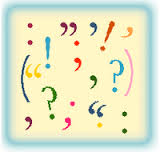



The two winners of Ellen Booraem’s new “Texting the Underworld” are
Brenda
and
My
Congrats and enjoy your prizes! Many thanks to all who submitted comments.
My family recently embarked on a trip of a lifetime, loading the van and hitting the road to see the United States in all its glory. As part of the trip, every member of the family chose a place they were guaranteed to see (along a particular part of the United States). Consequently, we are on our way to visit the Grand Coulee Dam, and I am writing this post from a campsite in Glacier National Park. The most important result for me, though, is that we also stopped at a little town along the shores of the Mississippi River – Pepin, Wisconsin.
Yes, I might as well confess here – though I feel relatively safe that I’m among friends on this blog – that I am a Bonnethead. I fell in love with the ‘Little House’ books just as the TV series rose to fame, and have never stopped marveling at the life and character of Laura Ingalls Wilder. Thus, fans of the ‘Little House’ books will recognize Pepin as the town where Laura Ingalls Wilder (LIW) was born, mentioned in ‘Little House in the Big Woods.’ The Laura Ingalls Wilder Museum is well-stocked with pieces from the era and the gift shop offers prairies dresses, as well as more books about LIW than I had ever imagined.
The real strength, for me, lay in witnessing its genuine affection for its most famous resident. A copy of Laura’s enrollment at the local school is proudly displayed, as well as a letter she wrote to her cousin, Lottie, later in life. (She notes that “[t]he books are still selling well.”) The Laura Ingalls Wilder Days in September offer plenty of fun in the spirit of the time (including spelling bee!), and photos of the past winners of the Laura contest are featured in the museum. You can join the Laura Ingalls Wilder Memorial Society to get newsletters, and for $60, you can have a paver inscribed with your name on it. None of this is possible without the kind of work that only comes with devotion.
Pepin has also erected a small cabin on a plot of land once owned by the Ingalls. As we drove through the lovely, winding farmland, I could appreciate the amount of work it would take to tame the land or to make a seven-mile journey to town, in a way that only comes with seeing the land itself. While the cabin is not placed where the original home existed, it was not hard to imagine two small girls playing in the front yard, looking up in surprise when the occasional wagon creaked by.
Maybe it’s something only another Bonnethead would understand. We’re now more than a thousand miles from Pepin, and my daughter and I are thoroughly enjoying William Anderson’s excellent middle-grade biography of LIW, which we purchased from the museum. The book deftly moves from moments in the books to omitted details from LIW’s life. One detail that left a lump in my throat was finding out that the last thing Mary remembered seeing before losing her sight was the blue of Grace’s eyes. As my own teenager snoozes nearby, we are able to admire Laura’s grit and work ethic at the same age, as she works for neighbors to support her own cash-strapped family.
Those of you with more tolerant families may be able to visit additional towns and pageants on your own Laura journey, such as De Smet, South Dakota or Walnut Grove, Minnesota. Adult fans who appreciate a humorous, armchair journey may enjoy Wendy McClure’s Wilder Days. So, fellow Bonnetheads, I’d like to know – what have you done in the name of LIW? Share your experiences below – whether you have fried a vanity cake, curled your hair with a lead pencil or attended a festival, I want to know!